Description
ABSTRACT
An Analysis of Nigeria’s Approach Towards Sports Development Through Legislation and Policy: The Need for a Review
Emmanuel George Agidi*
Sports is undoubtedly a significant economic asset to any country willing to harness it. Nigeria is a country richly talented in sports, possessing an illustrious history of accomplishments across various sporting events. The only drawback lies in the ineffectiveness of sports legislation, policies, and administration. This can be seen in the discordant management strategies, conceptual confusion, and uncoordinated practices prevalent in the Nigerian sports sector. This paper seeks to examine the policies, legislation, and management strategies currently in place for the regulation of the industry, identify the challenges with implementing these policies and proffer recommendations for the industry’s growth. It is recommended that the government adopt a non-interventionist approach in sports and limit its role to the provision of public interest-related legislation.
Keywords: Sports, Legislation, Policies, Management, Economy, Public Interest Related Legislation.
INTRODUCTION
Sports is undoubtedly a catalyst for socio-economic development and a major unifying force, especially in a country as diverse as Nigeria. Countries of the world have long recognised the economic and social potentials of sports and those, such as the United States and the United Kingdom, who have made adequate investments in it and provided an enabling regulatory framework and the necessary infrastructure have continued to reap varying benefits.
There is a substantial nexus between sports development and economic development, as demonstrated by countries such as the United States, the United Kingdom, Russia and China. The interconnectedness of sports and business has been evinced by contemporary examples from Europe as well as the United States, where private equity is driving some significant deals in sports, with big naming rights deals initiated by the decentralised financed sector, such as the AEG centre in America getting renamed to the Crypto.com Arena, among a host of other lucrative deals. With the clear impact of sports on the world’s economies, Nigeria, like other African states, has recently begun to take concrete steps to exploit the numerous benefits that sports present.
However, the development and progress of sports in Nigeria has been prolonged. Writers and sports law enthusiasts have, over time, attributed this slow progress to various factors, including the “Nigerian Factor”.1
*LL. B (Hons) IUO, BL, LL.M (in view) IUO. Emmanuel is an Associate in the Dispute Resolution team of Aluko & Oyebode, a full-service commercial law firm in Nigeria with its head office in Lagos.
- The Nigerian Factor, otherwise called “the Nigerian Way,” is a term used to refer to the defeatist attitude of most Nigerians in the face of Nigeria’s perverted value system. It is used to describe the intense moral decay or mental corruption which has seriously affected the Nigerian society to the extent that what is “universally” viewed as reprehensible, is paradoxically accepted in the Nigerian context as working and efficacious. In other words, it is the tendency of believing that anything—morally good or bad—is acceptable in Nigeria, because the country is in a severe state of social malady.

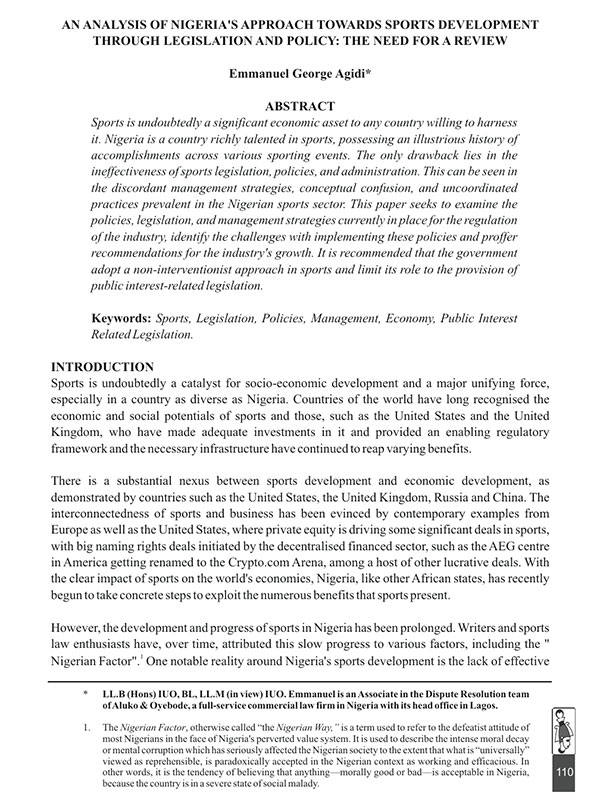
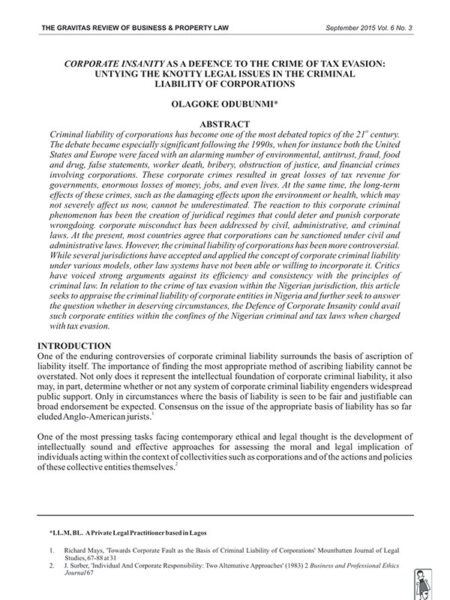
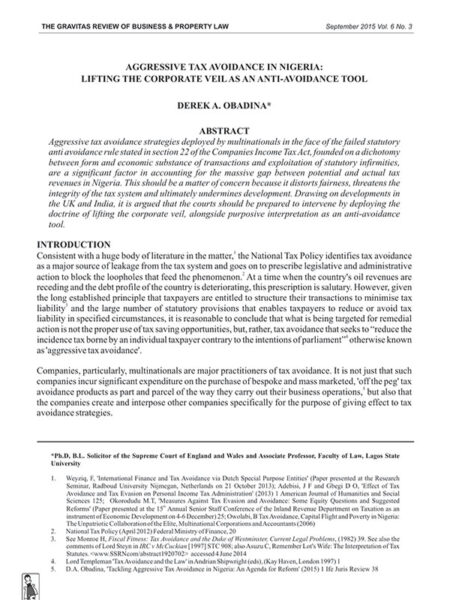
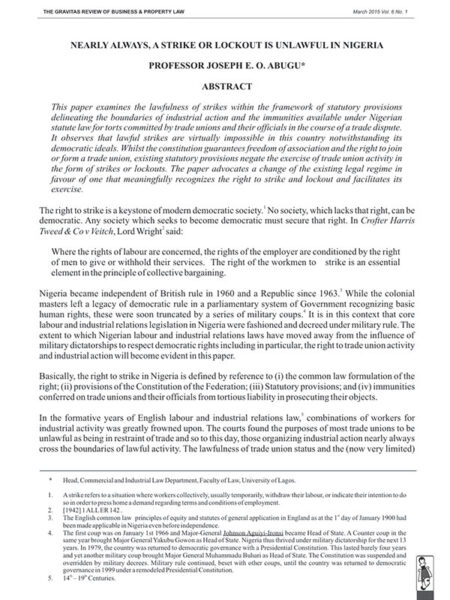
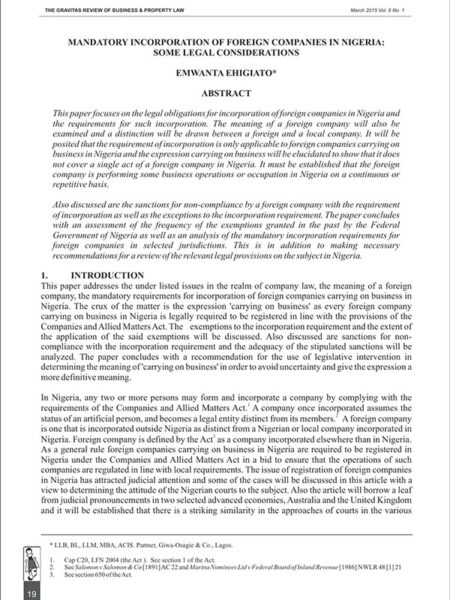


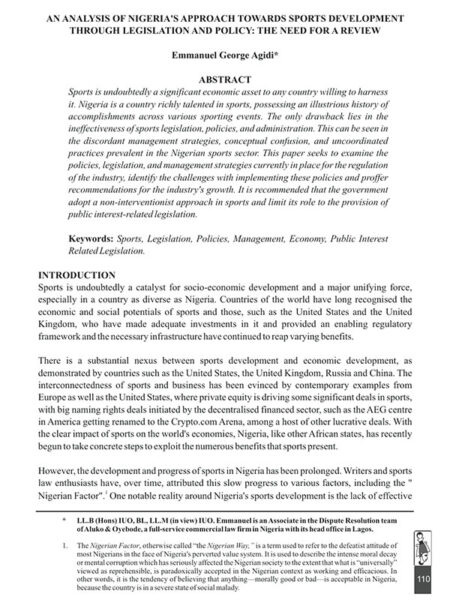
Reviews
There are no reviews yet.